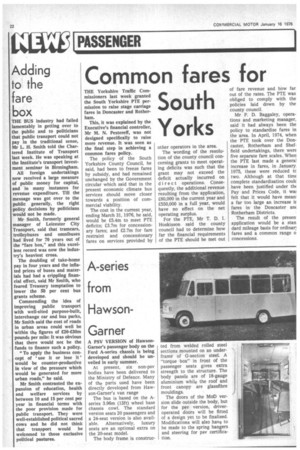Adding to the fare box
Page 24

If you've noticed an error in this article please click here to report it so we can fix it.
THE BUS industry had failed lamentably in getting over to the public and to politicians that public transport could not pay in the traditional sense, Mr L. H. Smith told the Chartered Institute of Transport last week. He was speaking at the Institute's transport investment seminar in Birmingham.
All foreign undertakings now received a large measure of public money for capital, and in many instances for revenue expenditure. Till the message was got over to the public generally, the right policy decisions by politicians would not be made.
Mr Smith, formerly general manager of Leicester City Transport, said that tramcars, trolleybuses and omnibuses had lived for 70 years out of the "fare box," and this excellent record was now the industry's heaviest cross.
The doubling of take-home pay in four years and the inflated prices of buses and materials had had a crippling financial effect, said Mr Smith, who feared Treasury temptation to lower the SO per cent bus grants scheme.
Commending the idea of improving public transport with well-sited purpose-built, interchange car and bus parks, Mr Smith said the cost of roads in urban areas could well be within the figures of £20-£30m pounds per mile: It was obvious that there would not be the funds to finance such a policy.
"To apply the business concept of use it or lose it' would be counter-productive in view of the pressure which would be generated for more urban roads," he said.
Mr Smith contrasted the expansion of education, health and welfare services by between 10 and 15 per cent per year in financial terms with the poor provision made for public transport. They were well-established political sacred cows and he did not think that transport would be welcomed to those exclusive political pastures.












































































































